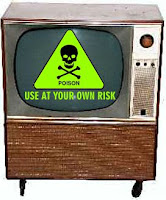Apocalypse and Alternate History: the novels of Monsignor Robert Hugh Benson
Now that so many people are reading books on electronic devices, more and more books are being made available in digital format. Since I became a Kindle owner a couple of years ago, I have really enjoyed dipping into the many old, out-of-copyright books that available to be downloaded at no cost. Project Gutenberg , which claims to be "the first producer of free electronic books (ebooks)," has for some years provided digitized versions of books in many formats, including those used on the Kindle and the Nook and other devices. Even more convenient for Kindle owners like myself is the fact that every time Project Gutenberg releases a "new" old (public domain) book, Amazon immediately publishes it for the Kindle at no cost. This provides an extra convenience for Kindle owners, since we can have it downloaded to our device automatically (cutting out a step, compared to acquiring it directly from Project Gutenberg) and we can keep the title in our library "cloud&q



